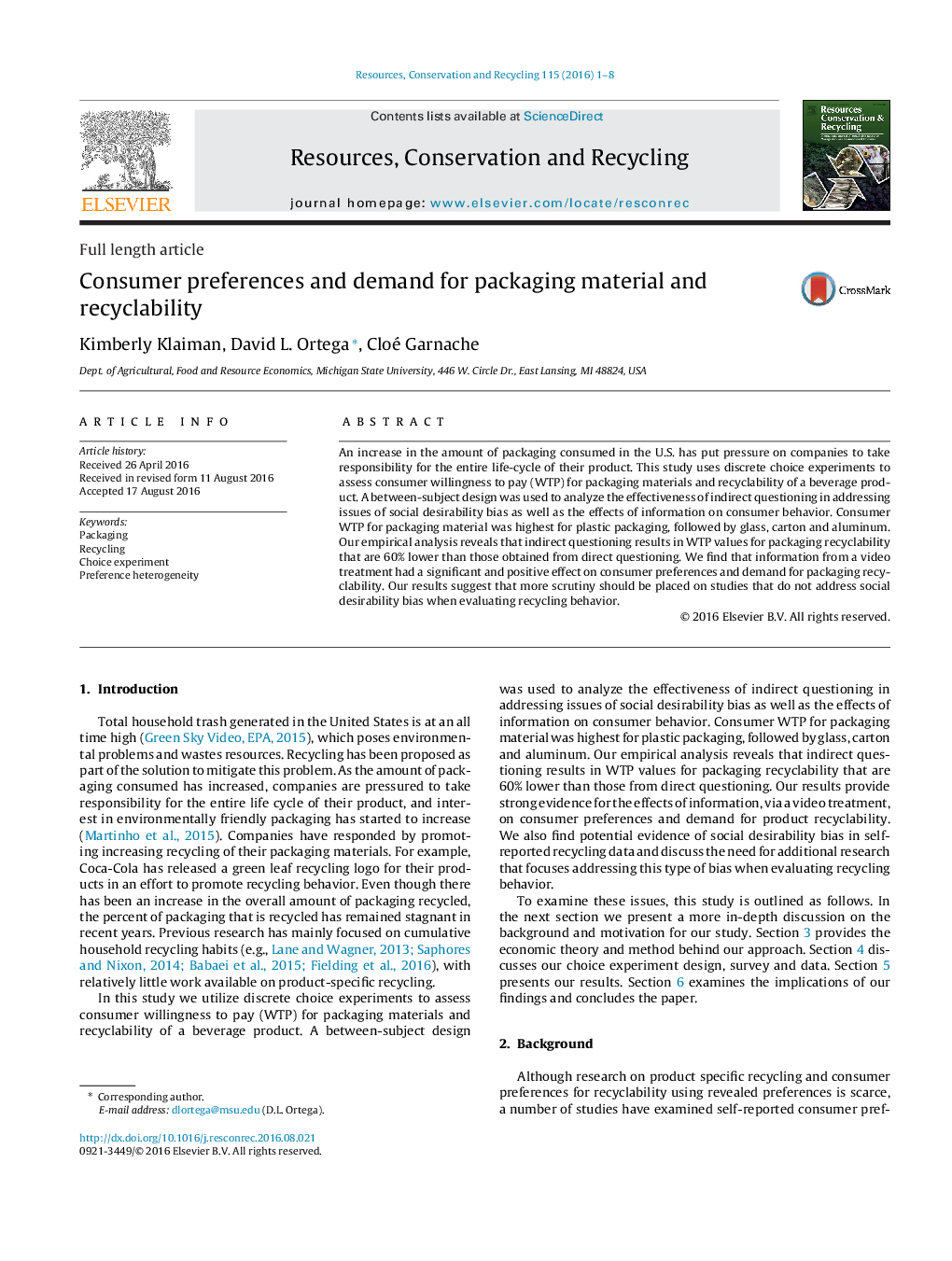| Article ID | Journal | Published Year | Pages | File Type |
|---|---|---|---|---|
| 1062650 | Resources, Conservation and Recycling | 2016 | 8 Pages |
•We assess consumer willingness to pay for packaging materials and recyclability.•Demand was highest for plastic packaging followed by aluminum, glass and carton.•Information increased consumer demand for packaging recyclability.•Findings suggest presence of social desirability bias in stated recycling behavior.
An increase in the amount of packaging consumed in the U.S. has put pressure on companies to take responsibility for the entire life-cycle of their product. This study uses discrete choice experiments to assess consumer willingness to pay (WTP) for packaging materials and recyclability of a beverage product. A between-subject design was used to analyze the effectiveness of indirect questioning in addressing issues of social desirability bias as well as the effects of information on consumer behavior. Consumer WTP for packaging material was highest for plastic packaging, followed by glass, carton and aluminum. Our empirical analysis reveals that indirect questioning results in WTP values for packaging recyclability that are 60% lower than those obtained from direct questioning. We find that information from a video treatment had a significant and positive effect on consumer preferences and demand for packaging recyclability. Our results suggest that more scrutiny should be placed on studies that do not address social desirability bias when evaluating recycling behavior.
